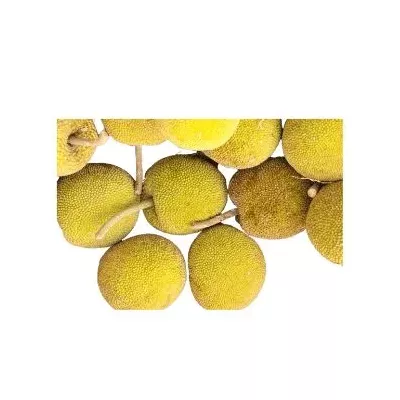



The anjili or wild jack looks similar to the common jackfruit, but is smaller and has a sour taste. It has a high nutritional value and taste and grows with minimal care.

Pay using UPI, Card or Netbanking

Shipping within 3 working days
Anjili, or the wild jackfruit, is very similar to jackfruit, but the fruit is much smaller. The fruits are very high in nutrient value. There could be hundreds of fruits on one mature tree, which is a beautiful sight.
It can grow without the need for any particular care.
It prefers slightly acidic or neutral soil. though it can tolerate slightly alkaline soil too.
Though it grows slowly in the initial years, the tree can grow from 30 to 50 metres tall. It is used in the lumber industry. Anjili is native to the western Ghats.
Grafted Anjili plants are shorter and can be planted in a smaller area. This makes harvesting easy. Also, grafted plants mature in 2–3 years.
The anjili, or ayini pazham, as it is called in some places, starts flowering in the months of January and February. The fruits mature from May to July. Unlike the thick skin of the jackfruit, the skin of the Anjili fruit is softer and can be done by hand. The size of the fruit is also much smaller that it can easily be held in one hand.
Rich in fibre content, it has vitamins A, C, potassium, zinc, and folic acid, wild jack can also be used as a vegetable.
Seeds are edible and are often fried to make a snack.
Data sheet